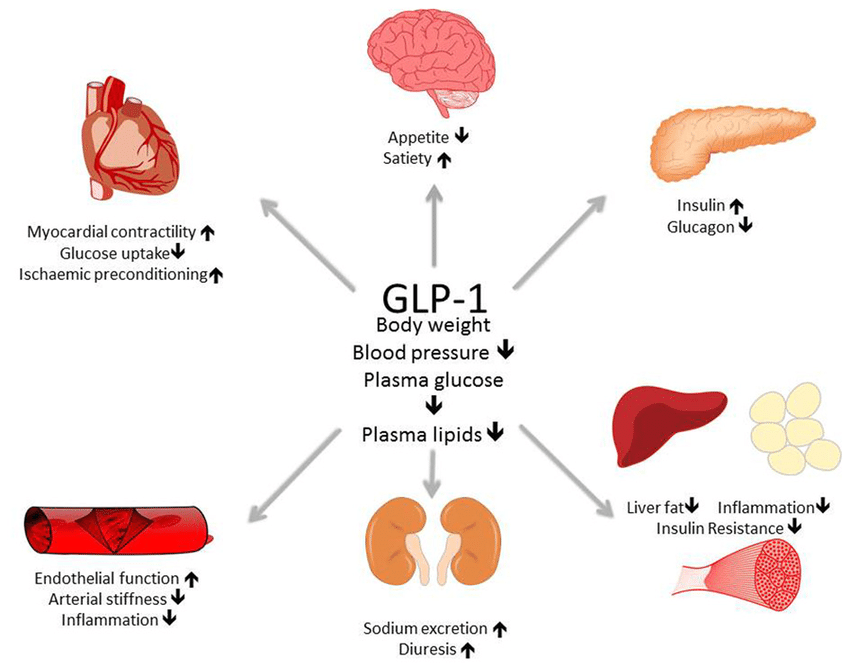GLP-1 drugs like Ozempic, Wegovy, and Zepbound, commonly known for aiding in weight loss and managing type 2 diabetes, may offer unexpected benefits for brain health, according to recent studies.
Obesity, a condition that affects over 40% of adults in the United States, is linked to chronic inflammation throughout the body, including the brain. This inflammation not only increases the risk of heart disease and type 2 diabetes but also contributes to neurodegenerative diseases like Alzheimer’s. Research suggests that GLP-1 medications may help reduce this brain inflammation and strengthen the blood-brain barrier, potentially slowing down cognitive decline.
These medications, which improve insulin sensitivity and promote weight loss, have become a focus of researchers aiming to explore their effects beyond metabolic health. New findings indicate that GLP-1 drugs can help balance the neurovascular unit—a crucial part of the brain responsible for regulating blood flow. This balance may contribute to improved cognitive function and possibly prevent the progression of neurodegenerative conditions.
Recent studies have shown that these drugs interact with key brain cells like astrocytes and microglia, which play protective roles in the brain’s immune response and help maintain the blood-brain barrier. In animal models, GLP-1 drugs have been found to enhance neuron growth and survival, reduce inflammation, and offer potential therapeutic effects for conditions like glaucoma and Alzheimer’s.
As researchers continue to study the broader applications of GLP-1 drugs, there’s growing optimism about their future use in protecting brain health, with potential trials on Alzheimer’s treatment already underway.
Stay tuned for updates as this exciting field of research evolves!
Could these weight-loss drugs be the key to healthier brains? The future looks promising.






